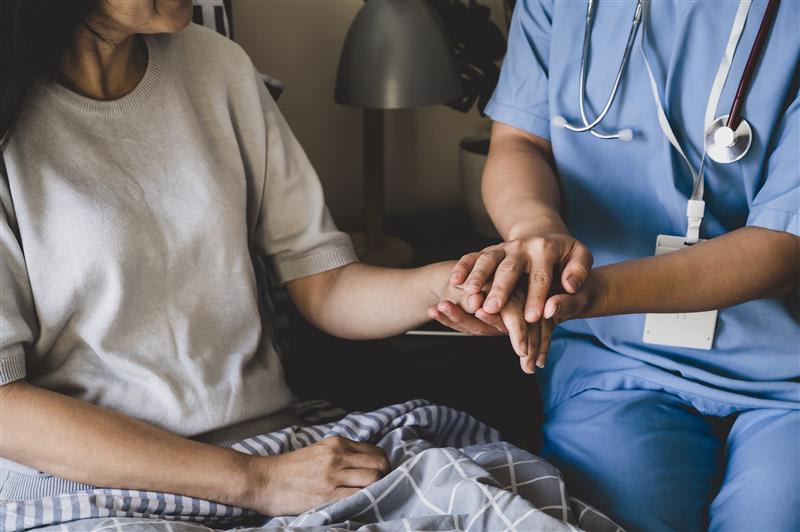Grant equips MultiCare to do more for sexual assault survivors

In Washington state, an estimated 61 percent of women and 34 percent of men experience sexual violence in their lifetimes. Victims often turn to their local emergency department for immediate help, but most nurses are under-trained when it comes to caring for these patients in crisis.
MultiCare Health System is ready to change that.
Meeting a critical need
In June 2024, MultiCare received a $1.5 million grant from the Health Resources and Services Administration to expand access to sexual assault nurse examiner (SANE) training. The three-year federally funded project will add approximately 300 SANE-trained and 15 SANE-certified nurses across the Inland Northwest, Yakima and Puget Sound regions.
A SANE is a registered or advanced practice nurse who’s trained to provide trauma-informed care to sexual and domestic violence survivors. They’re responsible for conducting forensic exams, documenting injuries, educating patients on available resources and testifying in trial if necessary — tasks that aren’t standard in nursing curriculum.
The grant will double the state’s SANE workforce by offering training to MultiCare nurses and nurses outside of MultiCare. Classes will take place quarterly in all three regions using a hybrid learning model, increasing accessibility for rural and medically underserved areas. MultiCare is one of only four non-university-affiliated applicants to receive this funding.
“It’s a really big deal,” says Jennifer Cantrell, RN, MSN, NPD-BC, SANE-A, interim project director. “Being chosen as a grant recipient proves that not only is there a need for this training, but MultiCare has the capability to support it.”
First line of response
In the aftermath of sexual assault, survivors who bravely come forward need a safe environment where they’re believed and provided wraparound care. Nurses, in turn, require training to feel confident and capable in these crucial moments.
“The risk of re-traumatization is real,” Cantrell shares. “We need to prepare our staff to handle and manage these complex, emotional and sometimes very traumatizing cases. There are so many physical aspects, but there’s also the psycho-social aspects.”
Only about one-third of victims report their sexual assault. How well they’re supported at an initial emergency department visit could influence whether they continue seeking help. More SANE-trained nurses will have a profound impact.
“We’re giving survivors control back over their body when they leave that hospital,” Cantrell explains. “They’ll know they were able to make decisions; that somebody believed them and validated that what happened to them is not OK; that they’re strong; and there are people there for them.”
A game-changer for rural health
Deirdre Demel, RN, has experienced the demand for more SANE training firsthand at MultiCare Yakima Memorial Hospital. As a single hospital caring for an entire county — comprising many rural communities — resources like this have often been out of reach. MultiCare’s 2023 acquisition of Yakima Memorial has expanded what’s possible.
“This training is so important because it provides a standard of care here that you usually see in the bigger cities,” Demel says.
Upon hearing news of the grant award, she was moved to tears. Demel’s department has administered more exams in recent years, and now new and experienced nurses will gain these important skills.
Philanthropy-powered care
Philanthropic funding — from individuals, businesses and government grants — allows MultiCare to pursue and launch bold initiatives that build safer, healthier communities.
“If we can start to put resources to help people in the early stages of trauma, we can help set them up for success to have a healthier life down the road,” Cantrell shares. “This grant is going to set a statewide foundation.”
This project is supported by HRSA, an agency of the HHS, as part of an award totaling $500,000 per year with 0 percent financed with nongovernmental sources. The contents are those of the author(s) and do not necessarily represent the official views of, nor an endorsement, by HRSA, HHS or the U.S. government.



